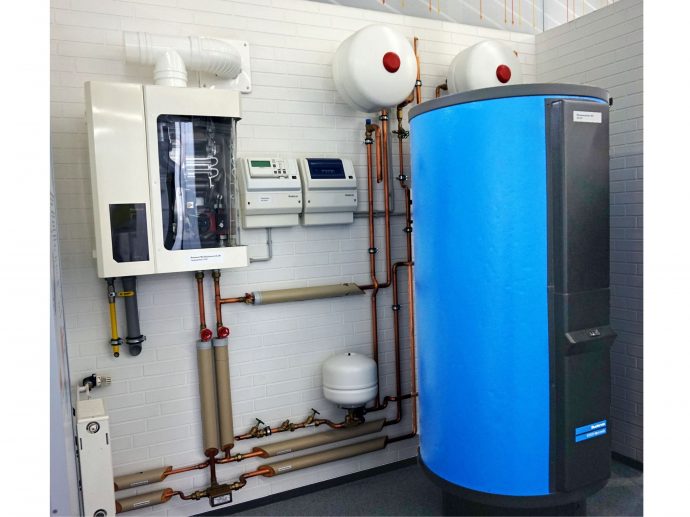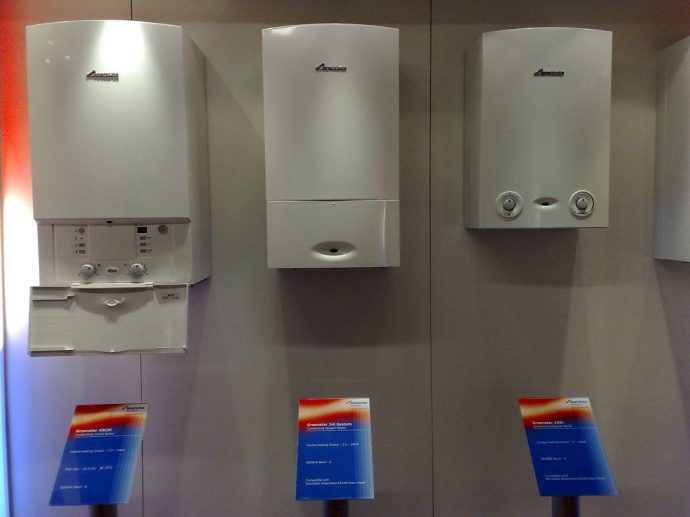Categories more
- Adventures (17)
- Arts / Collectables (15)
- Automotive (37)
- Aviation (11)
- Bath, Body, & Health (77)
- Children (6)
- Cigars / Spirits (32)
- Cuisine (16)
- Design/Architecture (22)
- Electronics (13)
- Entertainment (4)
- Event Planning (5)
- Fashion (46)
- Finance (9)
- Gifts / Misc (6)
- Home Decor (45)
- Jewelry (42)
- Pets (3)
- Philanthropy (1)
- Real Estate (16)
- Services (23)
- Sports / Golf (14)
- Vacation / Travel (59)
- Watches / Pens (14)
- Wines / Vines (24)
- Yachting / Boating (17)
Smart Gas Solutions: Installing Combi and System Boilers in Edinburgh
Published
09/14/2023In any household, a boiler stands as a critical feature. Its absence can undoubtedly pose challenges in maintaining a warm and comfortable living environment. Yet, within the realm of boilers, numerous types exist, each catering to specific requirements. To attain optimal results, it is imperative to identify which type aligns most effectively with your individual needs.
If you're in the process of replacing your home boiler or installing one for the first time, it's crucial to make a well-informed decision. There are two common options available to homeowners: system boilers and combi boilers.
It's important to note that you have the flexibility to choose either of them for your home. However, some individuals may argue that one is superior to the other. Nevertheless, we believe this isn't entirely accurate.
Both system boiler and combi come with their respective advantages and disadvantages. So, just because someone you know prefers one over the other doesn't necessarily mean it's the right choice for you. We recommend evaluating both options thoroughly before making a decision to determine which one best suits your needs. This article will take a deep look at both types to help you make an informed decision. So, read on to gain a better understanding of both.
Combi vs. System Boilers - How Are They Different?
The first step to understanding the difference between these two is learning how they work. Let’s start with combi boilers.
Combi is short for combination and this name is because of how this equipment works. A combi typically carries out two functions. It provides central heating and works as a water supply. It also works without a storage cylinder.
Whenever you need hot water, it simply takes the water from its source to heat it. All of these being done within one compact unit is amazing.
On the flip side, a system boiler is connected to a main source that draws water from the source and then heats it. The heated water will then be transferred to the tank that keeps it hot. Whenever you want hot water, it’ll be taken from this storage.
So, unlike a combi, a system boiler cannot function without a water tank. However, it only needs a hot water cylinder.
Another major difference that you can note between them is the quantity of hot water that they supply. Because system boilers have a storage tank, they can easily supply hot water to multiple rooms at a time. But combis won’t be able to measure up in this aspect.
Despite these significant differences, the outward appearance of both types may not appear markedly distinct. This underscores the importance of acquiring comprehensive knowledge about them to prevent any misconceptions or errors.
Advantages and Disadvantages of Combi and System Boilers
To further help you with making an informed decision, let’s look at the benefits and drawbacks of these different equipment below.
Advantages of Combination Boiler
Let’s start by looking at some of the advantages. They include the following:
- Energy Efficiency
Perhaps, the best advantage of combis is that they are energy-efficient. This is because they do not have a storage tank. So, they do not work extra to keep the tank hot enough to keep the water inside hot. Because of this, they are considered more cost-effective than their counterparts.
They are great for the environment and would help you reduce your carbon footprint. Click here to calculate your carbon footprint and learn more about environmental sustainability. They can also help you cut down on your electricity bill since they conserve energy. - Works on Demand
If you do not need hot water a lot, then you’d appreciate the on-demand feature of this equipment. You also don’t have to run out of hot water or wait for the water to get warm and then go to the storage cylinder before you can use it. - Easy Installation
Because storage cylinders aren’t needed, the installation process of this type is a whole lot easier. Aside from being easy, it is also cheaper, and less time-consuming. - Takes Up Less Space
If you have a small space, then this advantage would appeal to you a lot. The other options for heating your home take up too much space because of the required storage cylinders.
Combis eliminates this problem with its compact design and ability to function without tanks.
Disadvantages of Combination Boiler
You could say that the same feature that makes this equipment so cool is the same reason why some people may have trouble with it. Because combis have to heat water upon demand, they tend to struggle when demand is high.
Having to wait for the water to heat up before you get it can also be an issue for some people. However, this shouldn’t be much of an issue as the wait time is barely a few seconds.
Finally, if the pressure of the tap or the source it is connected to is too low, it will also affect the boiler’s output.
Advantages of System Boiler
Below are some of the advantages it offers:
- Accommodates High Demand
System boilers have zero issues supplying water to various outlets simultaneously. As far as it’s working the way it’s meant to. - Zero Wait Time
Unlike its counterpart, you do not have to wait even a second longer for your supply. This is all thanks to the storage cylinder it works with. - Solar Panel Compatibility
You can connect your system boiler to your solar panels to make it energy-efficient. Doing this will allow the equipment to draw the power needed to keep the tank hot from the solar panels.
Disadvantages of System Boiler
The storage cylinder can only hold a particular quantity of water at a time. If you were to use up all the water in the tank, then you’d wait for more water to get heated. You may try to avoid a situation where you have to experience this by using a timer. However, your schedule could change and you’d be right back to waiting.
System boilers are also quite chunky because of the tank they come with. So, you need enough space to accommodate it.
Another downside is the issue of efficiency. The tank has to be properly insulated. If it isn’t properly insulated, it will struggle to keep warm. If this happens, it will affect the boiler’s overall efficiency.
Finally, when compared with combis, this option is a whole lot more expensive. From installation to maintenance, and power bill, you’ll be spending much more on this.
Which Should You Choose?
Now that you know their pros and cons, you are most likely wondering “So which do I go for?”. Well, the answer to that depends on several factors like your needs and budget. To help you further, let’s look at some of the cases where a system boiler would be preferable to a combination one and vice versa.
Typically, if you do not have enough space in your home, then a combi boiler would be the ideal choice for you. Also, if your house isn’t that big and your water demand isn’t that high, then you can opt for a combi. But, if you live in a big home with more than 2 bathrooms, a system boiler would better suit your needs.
Another thing you need to consider to make your choice is your budget. Combis are cheaper; they cost less to install and maintain. So, if you have a limited budget, this may be an ideal choice for you.
Note that you’d need the help of professionals regardless of the choice you make. For any gas boiler installation in Edinburgh you carry out, take your time to find a company that offers top-notch services. When you hire a reliable company, you can be sure that they’ll do a good job for you.
Conclusion
When choosing a boiler for your home, the major things you need to consider are your needs and budget. Once you know what you want and how much you are willing to spend on the project, you’ll likely make the best choice.
















